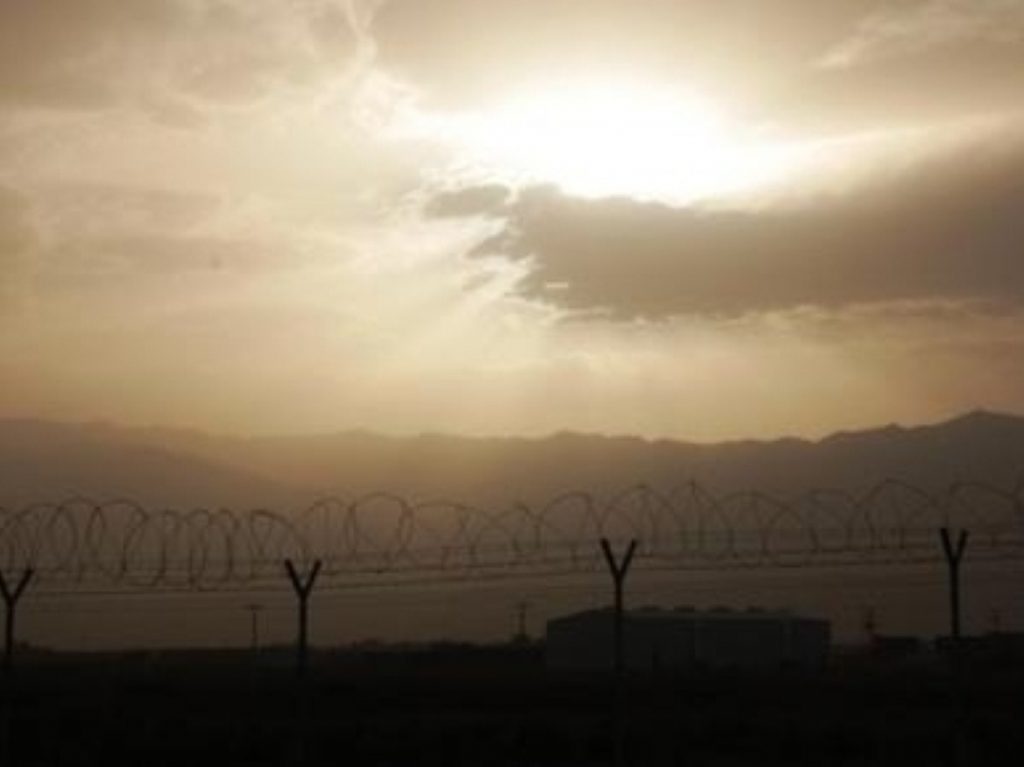Sketch: Sombre Cameron’s grim test
This is the part of being prime minister no one wants. Politics and violent deaths never mix well.
Sometimes things go horribly, horribly wrong. We can only imagine the sinking feeling in Tony Blair’s stomach when heard the news that a man had been shot dead on the London Underground. Or Gordon Brown’s emotions on seeing the Sun headline attacking him for misspelling the name of a fallen serviceman.
Or David Cameron’s face this morning as he heard General David Petraeus tell him about that aid worker Linda Norgrove may have been killed not by her captors – but by an American grenade.


Journalists, waiting elsewhere in the building, whiled away the time speculating about the possible delay. Was Vince Cable launching a pre-emptive resignation before tomorrow’s tuition fee report? Had the prime minister cycled into a tree? Was his wife pregnant again?
The flippant atmosphere vanished as soon as the press saw Cameron’s face. He looked drawn. His voice was quiet as he revealed Linda “could have died as a result of a grenade” thrown by US forces. The implications whenever such desperately sad news is unveiled are tremendous. In political terms, they quickly jump to: whose fault is it?
“There is no certainty,” Cameron said. In fact he said this phrase three, or four, or five times – I lost count – as he explained the decision to authorise the raid. Unusually, his attempts to explain the situation worked.
The decision had come after 12 Cobra meetings spent agonising over how best to extricate Ms Norgrove from her system. She was being “passed up the terrorist chain of command”, which only served to heighten the peril, Cameron said. He would go over the decision “100 times” but expected he would back his initial judgement. “You have to make a decision,” he said, grimly. And again: “There is no certainty.”
These are the sorts of events which test leaders. Handling the notorious ‘events’ which are thrown at every prime minister to deal with requires the same need to respond appropriately and sensitively. These matters can be tested on the campaign trail, as Brown found to his cost earlier this year. In government there is also the need for a steady hand, a calm voice, and the ability to make the right decision under pressure.
We were unlikely to see the latter in this press conference. “I’m sure you will understand I cannot discuss the intelligence,” he explained. Quite right. Cynics might say doing so would involve actually having to explain away what proved to be the wrong call.
Instead we only see the public face. “Right,” Cameron said under his breath, rather hoarsely, as the prelude to yet another question. He seemed weary and thoroughly upset. But he stuck to his line, again and again. “There is no certainty.”
Britain has a long and noble tradition of blaming the Americans whenever Anglo-American cooperation goes wrong. Perhaps this was the spirit which focused the minds of those leaving the room away from blaming Cameron – and towards an idea that the British government as a whole might have been misled. There are many unanswered questions to be addressed here. Cameron’s status as a diplomat, not a politician, is what will be tested in the weeks to come.
Having been intensely focused on the consequences of the botched escape attempt, it appeared, all morning – the look on his face as a journalist bravely attempted to change the subject was revealing. Might the prime minister care to comment on higher education, ahead of tomorrow’s major review by Lord Browne? Over the course of perhaps a second Cameron’s face registered disgust, irritation, contempt, and finally engagement.
By the time the question ground to a halt he was ready to lower himself to the trivialities of domestic British politics. Cable’s idea of a graduate tax was “full of problems”, Cameron said, which meant “everybody has to compromise”. The give-and-take of coalition politics, where even the threat of a major resignation seems a remote, petty affair, seemed a world away from the mountains of Afghanistan.

